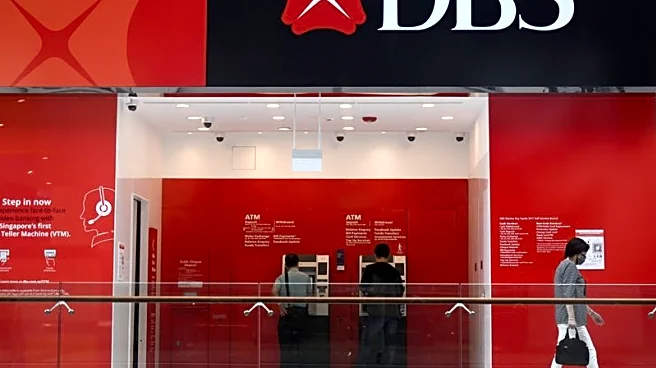What is the story about?
What's Happening?
Qantas has confirmed that hackers have released data stolen from 5.7 million customers. The breach occurred in July and involved a cyberattack on Salesforce, affecting Qantas and approximately 40 other companies. The stolen data has been released on the dark web after Qantas refused to meet the ransom demands set by the cybercriminals. The compromised data includes names, email addresses, and Frequent Flyer details, with some records also containing business or home addresses, dates of birth, phone numbers, gender, or meal preferences. Importantly, no credit card details, personal financial information, or passport details were impacted. Qantas has assured customers that Frequent Flyer accounts remain secure, and passwords, PINs, and login details were not accessed. The airline is collaborating with cybersecurity experts to assess the extent of the data exposure and has implemented additional security measures, including enhanced training and system monitoring.
Why It's Important?
The release of stolen data from Qantas highlights the growing threat of cyberattacks on major corporations, which can have significant implications for customer privacy and data security. This incident underscores the importance of robust cybersecurity measures and the potential risks associated with data breaches. For affected customers, the exposure of personal information could lead to identity theft or phishing attacks. The breach also serves as a reminder for companies to prioritize cybersecurity and invest in protective technologies to safeguard sensitive information. The refusal to pay the ransom reflects a stance against encouraging cybercriminal activities, but it also poses challenges in managing the fallout from such breaches.
What's Next?
Qantas is actively working with cybersecurity experts to determine the full scope of the data exposure and to prevent further dissemination of the stolen information. The airline has obtained an injunction from the NSW Supreme Court to restrict access to the compromised data. Moving forward, Qantas plans to continue strengthening its security protocols and monitoring systems to prevent future breaches. Customers are advised to remain vigilant for any suspicious communications and to protect their personal information. The incident may prompt other companies affected by the Salesforce breach to reassess their cybersecurity strategies and consider legal actions to mitigate the impact.
Beyond the Headlines
The Qantas data breach raises ethical questions about the responsibility of companies to protect customer data and the consequences of failing to do so. It also highlights the legal complexities involved in addressing cybercrime, including the use of court injunctions to control data dissemination. The incident may influence public policy discussions on cybersecurity standards and the role of government in regulating data protection practices. Additionally, the breach could lead to increased scrutiny of third-party service providers like Salesforce, emphasizing the need for comprehensive security measures across all levels of data handling.
















